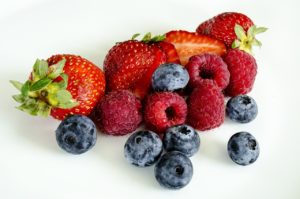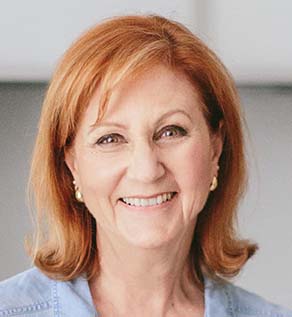Transcript – How to Stop Fructose Damaging Your Brain
Now that the University of Michigan has backed up the research study carried out by the Monash University research centre, the knowledge that IBS symptoms are controlled through the implementation of the low Fodmap diet will spread through the medical world.
One of the Fodmap groups is fructose. This will affect 45% of those with IBS, including me. So I have to stick to the low Fodmap fruits only for my fructose intake with little to no added sugar.
The problem is that many people with and without IBS consume far too much fructose in the form of added sugar – often through processed foods and drinks. There is mounting evidence as to the damage that an excessive intake of fructose has on our health in many different ways, and now they have come out with a recent study that shows evidence that a high-fructose diet harms 940 genes in the brain. These are genes that control metabolism, cell communication, inflammation, and brain function and therefore lead to leptin (the hormone that tells us we are full) resistance, metabolic syndrome (a group of conditions), and brain diseases such as Parkinson’s, depression, and bipolar disorder. Previous research already shows a high fructose diet damages the communication between brain cells, increase toxic molecules in the brain, and gradually reduces our ability to learn and remember information.
What can you do?
Restrict fructose from all sources (check those ingredients on processed foods) to about 25gms a day. Some pots of yogurt alone contain that much. This includes fruit juices too – don’t automatically think they are healthy for you.
And now we come to an interesting point. This quota of fructose does not include the whole fruit. And that’s because the fibre in whole fruits largely slows your body’s absorption of fructose. So no more juicing! It is making you unhealthy and fat because there is no time for the normal digestion to take place if the body is flooded with fructose when fibre is not present, and so it goes into your fat cells and increases your weight. This doesn’t happen with the whole fruit.
What else can you do?
Eat foods which contain Omega-3. The same study shows how an Omega 3 fat called DHA seems to reverse the harmful changes produced by high-fructose intake. We can get this DHA through oily fish, milk fat (e.g. butter or lard), and egg yolks. Your body can also make a little bit of DHA by converting the vegetable form of Omega 3 (ALA) found in flaxseeds and chia seeds, but not nearly as much as the animal sources.
Bottom line – read labels and limit your fructose intake to 25gms per day and consume foods that contain Omega-3.
Source: https://www.ebiomedicine.com/article/S2352-3964%2816%2930143-8/abstract




Great information Suzanne
Two questions if I may.
I have recently read that Natural Rice Malt syrup can be used in the low fodmap diet instead of sugar?
Also instead of garlic and onion use “Asafoetida” spice
( used in Indian cooking.) This Asafoetida spice) has the flavour of garlic and onion .
What are your thoughts?
Sue
Yes, rice malt syrup is okay as is asafoetida spice but I just use the green part of spring onions for the onion flavour and garlic oil for garlic.
Gosh sue this could be a lot of my problem as I am pre diabetic and I no a lot of things turn to sugar in the body.
You will need to take care of that condition to make sure it doesn’t turn into full blown diabetes. Sugar is hidden everywhere.